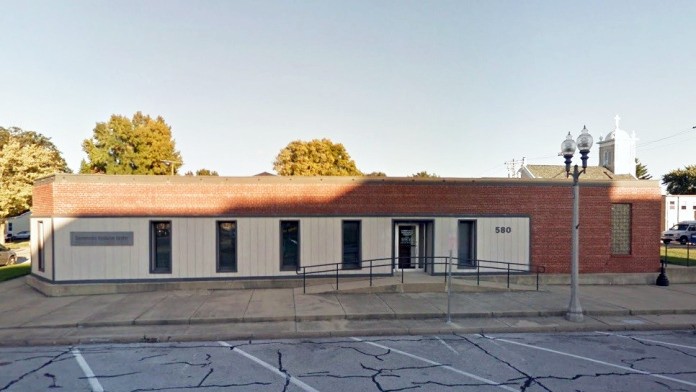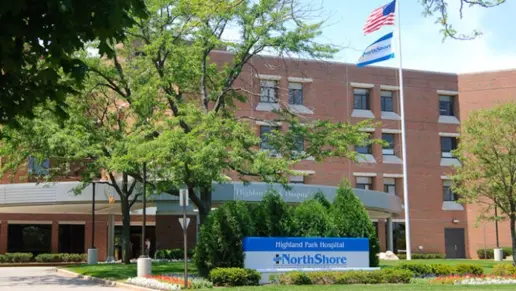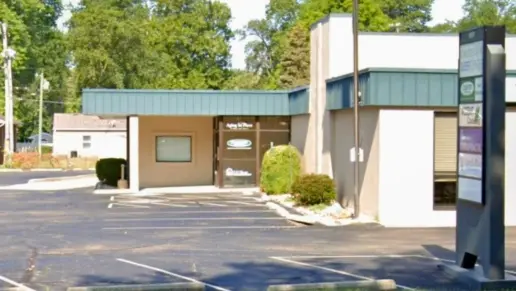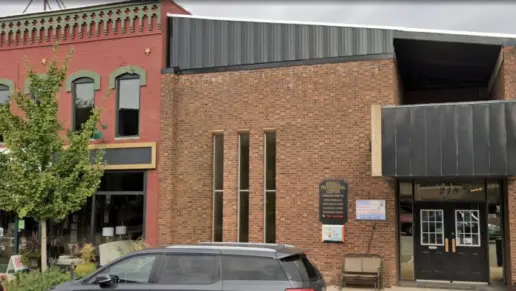About Community Resource Center
Specialty rehab programs at Community Resource Center include tailored care focusing on women's specific needs and experiences, gender-specific addiction treatment addressing unique challenges faced by men, and age-appropriate treatment for teens addressing adolescent-specific issues.
Patients at Community Resource Center will find the residential setting creates an immersive environment promoting full engagement in recovery away from daily triggers.
Latest Reviews
Rehab Score
Gallery

Location
Accepted Insurance
Other Forms of Payment
Medicaid is a state based program that helps lower-income individuals and families pay for healthcare. Medicaid covers addiction treatment so those enrolled can use their coverage to pay for rehab. When a program accepts Medicaid the client often pays very little or nothing out of their own pocket.
Private insurance refers to any kind of healthcare coverage that isn't from the state or federal government. This includes individual and family plans offered by an employer or purchased from the Insurance Marketplace. Every plan will have different requirements and out of pocket costs so be sure to get the full details before you start treatment.
Self-pay involves paying for treatment out of your own pocket. You can use savings or credit, get a personal loan, or receive help from family and friends to fund your treatment. If you don't have insurance or your insurance plan doesn't cover a specific program, self-pay can help ensure you still get the care you need.
Financial aid can take many forms. Centers may have grants or scholarships available to clients who meet eligibility requirements. Programs that receive SAMHSA grants may have financial aid available for those who need treatment as well. Grants and scholarships can help you pai for treatment without having to repay.
Sliding scale payments are based on a client's income and family size. The goal is to make treatment affordable to everyone. By taking these factors into account, addiction recovery care providers help ensure that your treatment does not become a financial burden to you or your family, eliminating one barrier to care.
Medicare is a federal program that provides health insurance for those 65 and older. It also serves people under 65 with chronic and disabling health challenges. To use Medicare for addiction treatment you need to find a program that accepts Medicare and is in network with your plan. Out of pocket costs and preauthorization requirements vary, so always check with your provider.
Military members, veterans, and eligible dependents have access to specific insurance programs that help them get the care they need. TRICARE and VA insurance can help you access low cost or no cost addiction and mental health treatment. Programs that accept military insurance often have targeted treatment focused on the unique challenges military members, veterans, and their families face.
Addiction Treatments
Levels of Care
Treatments
The goal of treatment for alcoholism is abstinence. Those with poor social support, poor motivation, or psychiatric disorders tend to relapse within a few years of treatment. For these people, success is measured by longer periods of abstinence, reduced use of alcohol, better health, and improved social functioning. Recovery and Maintenance are usually based on 12 step programs and AA meetings.
Drug rehab in Illinois is designed to help people recover from addiction to a number of substances. The length of each program and its intensity tend to vary, and the plan of care is based on your individual needs.
Many of those suffering from addiction also suffer from mental or emotional illnesses like schizophrenia, bipolar disorder, depression, or anxiety disorders. Rehab and other substance abuse facilities treating those with a dual diagnosis or co-occurring disorder administer psychiatric treatment to address the person's mental health issue in addition to drug and alcohol rehabilitation.
A combined mental health and substance abuse rehab has the staff and resources available to handle individuals with both mental health and substance abuse issues. It can be challenging to determine where a specific symptom stems from (a mental health issue or an issue related to substance abuse), so mental health and substance abuse professionals are helpful in detangling symptoms and keeping treatment on track.
Opioid rehabs specialize in supporting those recovering from opioid addiction. They treat those suffering from addiction to illegal opioids like heroin, as well as prescription drugs like oxycodone. These centers typically combine both physical as well as mental and emotional support to help stop addiction. Physical support often includes medical detox and subsequent medical support (including medication), and mental support includes in-depth therapy to address the underlying causes of addiction.
Programs


Clinical Services
Cognitive Behavioral Therapy (CBT) is a therapy modality that focuses on the relationship between one's thoughts, feelings, and behaviors. It is used to establish and allow for healthy responses to thoughts and feelings (instead of unhealthy responses, like using drugs or alcohol). CBT has been proven effective for recovering addicts of all kinds, and is used to strengthen a patient's own self-awareness and ability to self-regulate. CBT allows individuals to monitor their own emotional state, become more adept at communicating with others, and manage stress without needing to engage in substance abuse.
Whether a marriage or other committed relationship, an intimate partnership is one of the most important aspects of a person's life. Drug and alcohol addiction affects both members of a couple in deep and meaningful ways, as does rehab and recovery. Couples therapy and other couples-focused treatment programs are significant parts of exploring triggers of addiction, as well as learning how to build healthy patterns to support ongoing sobriety.
CRC staff attempt to involve family members in treatment whenever possible. Sessions for individual families are offered as well as group programs. The goals are to enhance understanding within the family, work toward problem resolution, enhance overall family functioning and improve family relationships. In addition, intervention training for families is provided.
The staff have developed and provide a variety of group programs for both mental health and substance abusing clients as well as family members. Using input from clients and the community, the staff members develop relevant group programs that address the needs of the consumers. The goals for the group are to enhance the individual's functioning through the interactions made available by the group process. Groups are available to treat multiple issues including sex offender treatment, anger management, offenders of domestic violence, parenting, coping skills, substance abuse, anxiety, depression, etc.
In individual therapy, a patient meets one-on-one with a trained psychologist or counselor. CRC programs offer individual, face-to-face counseling, assessment, crisis and referral services to clients presenting with mental health or substance abuse disorders. Education, counseling, referrals, etc., are used when appropriate in the provision of treatment. HIV/AIDS risk reduction education and TB education and referrals for testing are provided routinely.
Life skills trainings involve all the skills a person must have in order to function successfully in the world. Community Support is a community-based treatment service designed to foster independent living and optimal functioning for individuals who require a higher level of care. Community Support Specialists work with individuals teaching skills to improve identified deficits and practice those skills in the community.
TREM is an evidence based, facilitated group approach to healing from the effects of trauma. TREM is a fully manualized group-based intervention designed to facilitate trauma recovery among women with exposure to sexual and physical abuse. M-TREM is a fully manualized, group-based intervention designed to facilitate trauma recovery among trauma surviving men. TF-CBT is an empirically supported treatment model designed to assist children, adolescents, and their parents in the aftermath of traumatic experiences, through a components based hybrid approach that integrates trauma-sensitive interventions, cognitive-behavioral principals, as well as, aspects of attachment, developmental neurobiology, family, empowerment, and humanistic theoretical models in order to optimally address the needs of traumatized children and families in weekly individual appointments.
Amenities
-
Residential Setting
Contact Information
580 8th street
Carlyle, IL 62231







